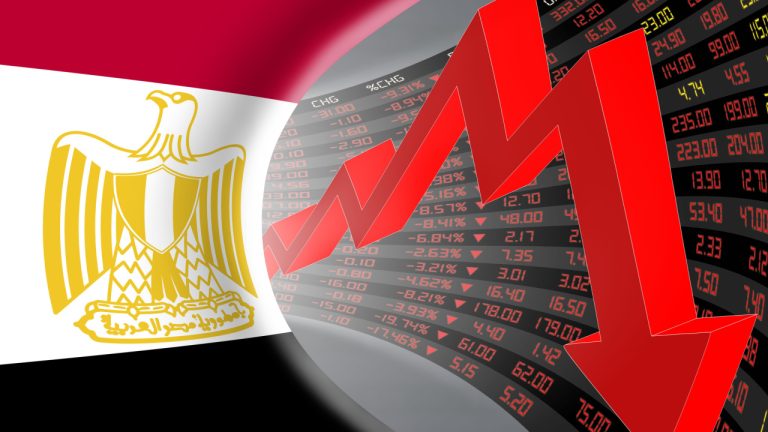Egyptian Currency Plunges 15% After Cairo Accedes to Key IMF Exchange Rate Condition

After authorities in Egypt announced the adoption of a more flexible exchange rate regime, the pound exchange rate versus the U.S dollar plunged to 23.09:1, a new low for the currency. Cairo’s apparent devaluation of the Egyptian pound met a key condition set by the International Monetary Fund (IMF) before it eventually approved a $3 billion bailout package for Egypt.
The IMF’s Key Condition
A report has said that the official exchange rate of the Egyptian pound versus the U.S dollar plunged by 15% to 23.09 per dollar after the central bank announced the adoption of a more flexible exchange rate regime. Cairo’s apparent devaluation of the currency came as news broke that Egypt had reached an agreement with the International Monetary Fund (IMF) which will see it receive a $3 billion financial bailout.
Before the pound’s latest slip, the currency had traded at just under 20 units per dollar. Some banks in Egypt, as well as the IMF, argued that the exchange rate, which was last adjusted in March, overvalued the currency. Before that, the pound-versus-dollar exchange rate had remained unchanged for about two years.
As previously reported by Bitcoin.com News, Egypt’s chances of securing a bailout from the international financial institution had hinged on it abandoning the fixed exchange rate regime. As noted in the report, the IMF had similarly demanded the devaluation of the Egyptian pound before it eventually approved a $12 billion loan package back in 2016.
Support From Egypt’s Allies in Gulf Cooperation Council
Meanwhile, in addition to agreeing to the $3 billion loan package, Egypt is set to get $5 billion from the so-called international partners. According to a Bloomberg report which quotes unnamed government officials, the additional funding is intended to help Egypt cover its external financing gaps. Egypt has also requested $1 billion from the IMF’s newly created sustainability fund.
Although Egypt’s latest loan agreement with IMF has not matched expectations, one analyst with the London-based Columbia Threadneedle Investments, Gordon Bowers, said this likely paves the way for the country’s rich allies to step in. He said:
[It] seems that additional GCC [Gulf Cooperation Council] support was contingent on IMF involvement. This is a positive.
Reports suggest Egypt’s GCC allies have pledged over $20 billion in aid, which is expected to come in the form of deposits and investments.
Register your email here to get a weekly update on African news sent to your inbox:
What are your thoughts on this story? Let us know what you think in the comments section below.



